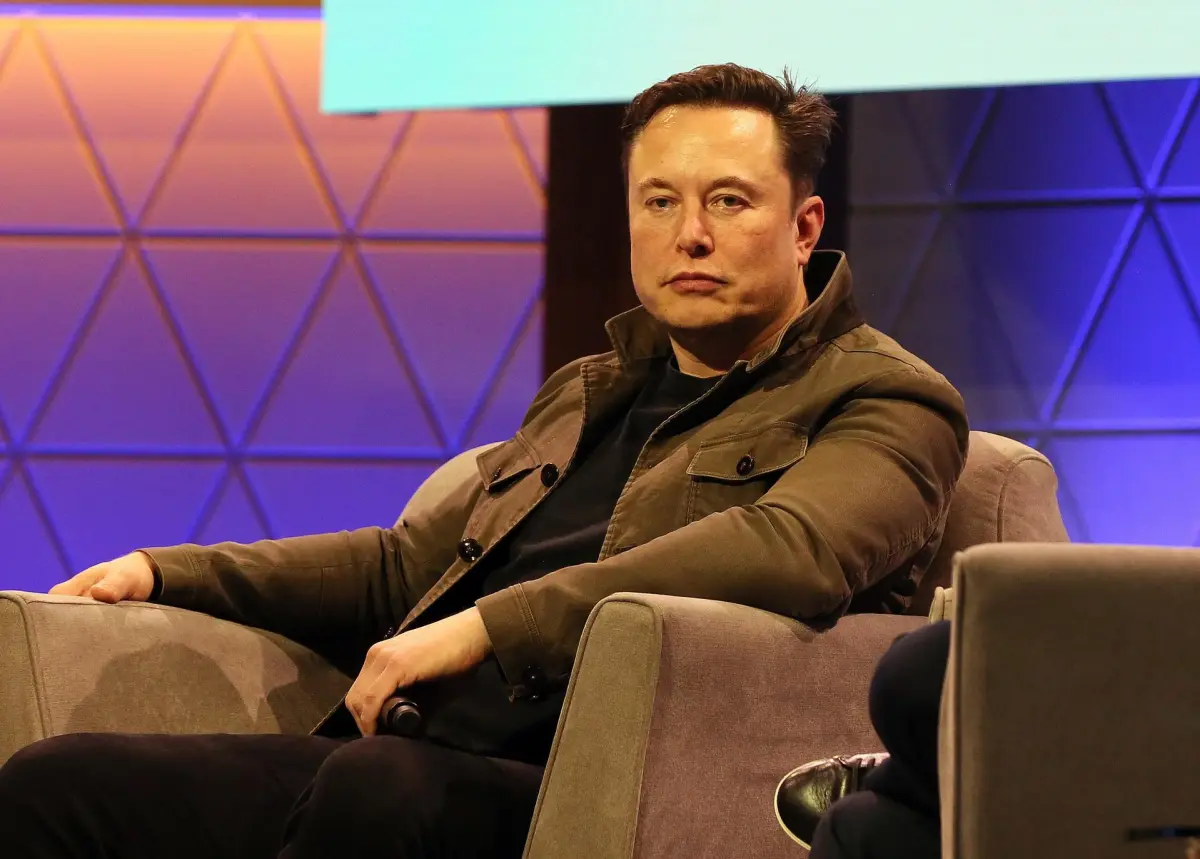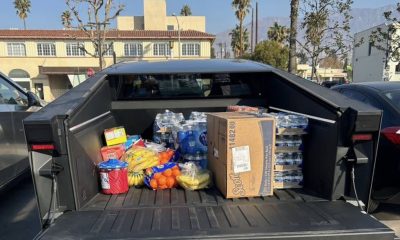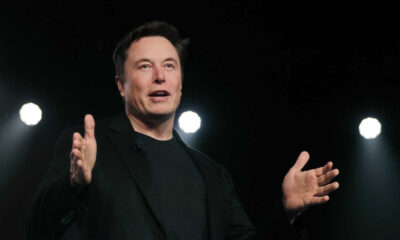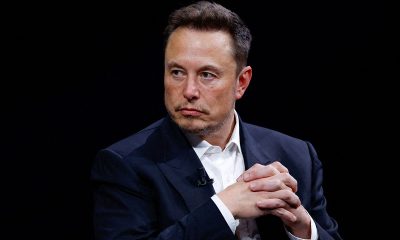International
Elon Musk could support a candidate in the final stretch of the U.S. presidential elections

The executive director of Tesla and owner of X, Elon Musk, said he could support a U.S. presidential candidate “in the final stretch” of this November’s elections, although he did not specify who, in an interview with former CNN presenter Don Lemon.
“I may, in the final stretch (of the elections), support a candidate, but I don’t know yet,” said Musk, who pointed out that he will make the decision later and that when he does he will explain “exactly why” he opted for that candidate.
However, Musk, who is one of the richest men in the world – and increasingly critical of Joe Biden’s Democratic government – said that it is “unlikely” that he will donate any of the candidates money.
Trump met with Musk in Florida this month but, according to the billionaire, the former president and Republican candidate did not ask him for support, donations or help to pay his legal fees, increasingly bulging by the multitude of court cases he faces.
Although Musk has never given explicit support to Trump, he has been very critical on his social network with the policies of Biden and the Democratic Party, especially with regard to immigration.
According to The Wall Street Journal, the supporters of Robert F. Kennedy, nephew of former President John F. Kennedy and independent candidate in the presidential elections, expect Musk to support his candidacy.
The interview between Lemon and Musk lasted an hour and had a tense tone; both talked about several topics related to hate speech in X and Musk’s own opinions about some of the theories most beloved by the far right – such as the racist theory of the “great replacement” of the white population – and even the billionaire’s consumption of ketamine.
At one point in the interview, which took place at Tesla’s headquarters in Austin (Texas), Lemon showed several hate posts in X and told Musk that his platform should eliminate them because “they can lead to violence.”
To which Musk replied that although Lemon “loves censorship,” X will only remove content that is illegal, such as pornographic.
Musk also said that the US should “overcome” racism and look to the future, since if you look to the past “everyone descends from slaves.”
Another tense part of the interview was when Lemon asked Musk about his medical prescription to use ketamine, a dissociative anesthetic with hallucinogenic potential.
Musk said that he uses ketamine from time to time to treat depression, a disease, which he said, sometimes suffers from.
Last week the former presenter of the CNN network announced that Musk canceled his agreement to make a program with X because he said he was not happy with the interview that the journalist had given him.
Lemon left CNN in April, two months after receiving criticism on ´CNN This Morning´ for saying that former Republican presidential candidate Nikki Haley was not in her fullness as a woman, fullness that is achieved “at 20, 30 and perhaps 40”; she was later forced to apologize for the comment.
Lemon, who became a face synonymous with CNN, worked on the network for 17 years.
The company has been trying to introduce more videos and long-format content since Musk took the reins after buying the company.
One of his X star collaborators is the controversial former Fox News presenter, Tucker Carlson, who has published exclusive interviews on X with Donald Trump, Russian President Vladimir Putin, and the president of Argentina, Javier Milei.
International
U.S. Senate Rejects Budget, Bringing Government Closer to Shutdown Amid DHS Dispute

The U.S. Senate voted on Thursday against a budget proposal in a move aimed at pressuring changes at the Department of Homeland Security (DHS), following the killing of two civilians during a deployment of immigration agents in Minneapolis.
All Senate Democrats and seven Republican lawmakers voted against the bill, which requires 60 votes to advance, pushing the country closer to a partial government shutdown that would cut funding for several agencies, including the Pentagon and the Department of Health.
The rejection came as Senate leaders and the White House continue negotiations on a separate funding package for DHS that would allow reforms to the agency. Proposed measures include banning Immigration and Customs Enforcement (ICE) agents from wearing face coverings and requiring them to use body-worn cameras during operations.
The vote took place just hours after President Donald Trump said he was “close” to reaching an agreement with Democrats and did not believe the federal government would face another shutdown, following last year’s record stoppage.
“I don’t think the Democrats want a shutdown either, so we’ll work in a bipartisan way to avoid it. Hopefully, there will be no government shutdown. We’re working on that right now,” Trump said during a Cabinet meeting at the White House.
International
Trump Says Putin Agreed to One-Week Halt in Attacks on Ukraine Amid Extreme Cold

U.S. President Donald Trump said on Thursday that he secured a commitment from Russian President Vladimir Putinto halt attacks against Ukraine for one week, citing extreme weather conditions affecting the region.
“Because of the extreme cold (…) I personally asked Putin not to attack Kyiv or other cities and towns for a week. And he agreed. He was very pleasant,” Trump said during a Cabinet meeting broadcast by the White House.
Trump acknowledged that several advisers had questioned the decision to make the call.
“A lot of people told me not to waste the call because they wouldn’t agree. And he accepted. And we’re very happy they did, because they don’t need missiles hitting their towns and cities,” the president said.
According to Trump, Ukrainian authorities reacted with surprise to the announcement but welcomed the possibility of a temporary ceasefire.
“It’s extraordinarily cold, record cold (…) They say they’ve never experienced cold like this,” he added.
Ukrainian President Volodymyr Zelensky later commented on the announcement, expressing hope that the agreement would be honored.
International
Storm Kristin Kills Five in Portugal, Leaves Nearly 500,000 Without Power

Storm Kristin, which battered Portugal with heavy rain and strong winds early Wednesday, has left at least five people dead, while nearly half a million residents remained without electricity as of Thursday, according to updated figures from authorities.
The revised death toll was confirmed to AFP by a spokesperson for the National Emergency and Civil Protection Authority (ANPEC). On Wednesday, the agency had reported four fatalities.
Meanwhile, E-Redes, the country’s electricity distribution network operator, said that around 450,000 customers were still without power, particularly in central Portugal.
Emergency services responded to approximately 1,500 incidents between midnight and 8:00 a.m. local time on Wednesday, as the storm caused widespread disruptions.
The Portuguese government described Kristin as an “extreme weather event” that inflicted significant damage across several regions of the country. At the height of the storm, as many as 850,000 households and institutions lost electricity during the early hours of Wednesday.
Several municipalities ordered the closure of schools, many of which remained shut on Thursday due to ongoing adverse conditions.
Ricardo Costa, regional deputy commander of the Leiria Fire Brigade, said residents continue to seek assistance as rainfall persists.
“Even though the rain is not extremely intense, it is causing extensive damage to homes,” he noted.
In Figueira da Foz, a coastal city in central Portugal, strong winds toppled a giant Ferris wheel, underscoring the severity of the storm.
-

 Central America4 days ago
Central America4 days agoGuatemala seizes over a ton of cocaine hidden in flour at Pacific port
-

 International4 days ago
International4 days agoHistoric snowstorm paralyzes Toronto after 60 centimeters of snow
-

 Central America3 days ago
Central America3 days agoGuatemala Police Arrest Prison Guard Caught in the Act of Extortion
-

 Central America3 days ago
Central America3 days agoHonduras swears in conservative president Asfura after disputed election
-

 Central America3 days ago
Central America3 days agoBukele leads public trust rankings as UCA survey highlights gains in security
-

 International4 days ago
International4 days agoSpain’s irregular migrant population rises to 840,000, study finds
-

 International2 days ago
International2 days agoFootball Fan Killed in Clashes After Colombian League Match
-

 International3 days ago
International3 days agoWinter Storm Fern Leaves 30 Dead and Over One Million Without Power Across the U.S.
-

 Central America2 days ago
Central America2 days agoGuatemala President Says Starlink Terminal Found Inside Prison
-

 Sin categoría3 days ago
Sin categoría3 days agoEight Killed in Series of Armed Attacks in Ecuador’s Manabí Province
-

 International3 days ago
International3 days agoDoomsday clock moves to 85 seconds before midnight amid rising global risks
-

 International4 days ago
International4 days agoRights group says nearly 6,000 killed in Iran protest crackdown
-

 International2 days ago
International2 days agoRubio Says U.S. Could Participate in Follow-Up Russia-Ukraine Talks
-

 International2 days ago
International2 days agoMissing Spanish Sailor Rescued After 11 Days Adrift in Mediterranean
-

 International3 days ago
International3 days agoSpain approves plan to regularize up to 500,000 migrants in Historic Shift
-

 Sin categoría3 days ago
Sin categoría3 days agoEl Salvador Launches Fourth Year of Ocean Mission to Protect Marine Ecosystems
-

 International4 days ago
International4 days agoVenezuela frees at least 80 political prisoners, NGO says
-

 International4 days ago
International4 days agoEU launches new probe into X over AI-generated fake nude images
-

 International21 hours ago
International21 hours agoU.S. Senate Rejects Budget, Bringing Government Closer to Shutdown Amid DHS Dispute
-

 International4 days ago
International4 days agoSevere winter storm grips U.S., leaves multiple dead as extreme cold persists
-

 International4 days ago
International4 days agoFrance debates ban on social media for children under 15
-

 International21 hours ago
International21 hours agoStorm Kristin Kills Five in Portugal, Leaves Nearly 500,000 Without Power
-

 International21 hours ago
International21 hours agoTrump Says Putin Agreed to One-Week Halt in Attacks on Ukraine Amid Extreme Cold
-

 International21 hours ago
International21 hours agoMan Arrested After Vehicle Crashes Into Jewish Institution in Brooklyn


































